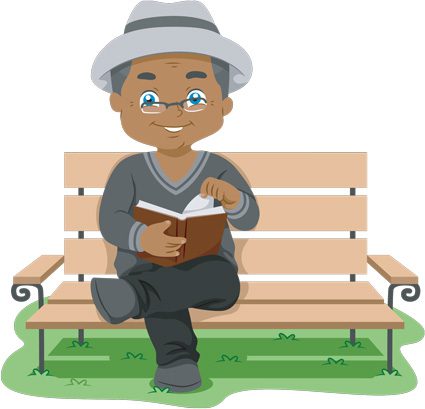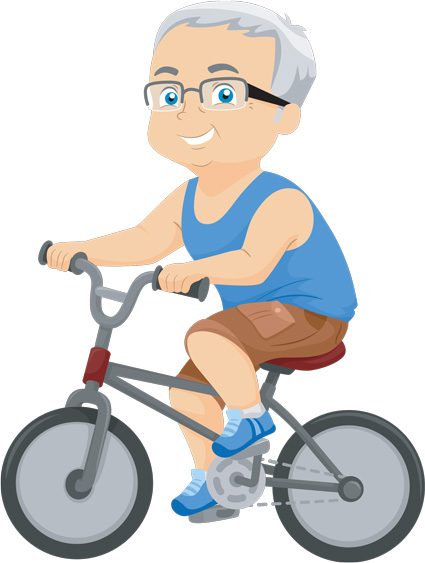“Changes in social norms and expectations are also playing a big role,” Cotton says. “The baby boomer generation, just by sheer numbers, has a huge influence on the role of seniors in our society. Members of the baby boomer generation expect to remain vital and involved, so they create a society that supports their expectations. In my opinion, what’s great about this is that a society that promotes the well-being of seniors seems to promote the well-being of everyone.”
Van Winkle, a boomer herself, talks about some of the characteristics that make this latest generation of seniors different from those in the past.
 “There are a lot of us and we often are not shy in letting our needs and desires be known,” she says of her peers. “In terms of health and health care, I believe the baby boomer generation will be more health literate than past generations and will want to be more involved in making health care decisions that affect them. I think there will be an increasing effort to change and improve the long-term care system. Since many of us are living to older ages, we may be in need of long-term care services at some point in our lives. I believe we will continue to prefer to stay at home and receive services for as long as possible, rather than receive services in a long-term care facility.”
“There are a lot of us and we often are not shy in letting our needs and desires be known,” she says of her peers. “In terms of health and health care, I believe the baby boomer generation will be more health literate than past generations and will want to be more involved in making health care decisions that affect them. I think there will be an increasing effort to change and improve the long-term care system. Since many of us are living to older ages, we may be in need of long-term care services at some point in our lives. I believe we will continue to prefer to stay at home and receive services for as long as possible, rather than receive services in a long-term care facility.”
Cotton says that with the advent of this large senior population, it’s not only baby boomers who will be educating themselves — younger generations have a lot to learn as well. Most immediately, she says, we should begin to consider the design of our environment and how best to develop safe and welcoming spaces for the growing number of older adults. Examples might include better or differently lit spaces for those with low vision, wider doors and more automatic doorways, or grab bars in restrooms. All of these changes should be considered universally for all environments, Cotton says, not just in places where seniors are thought to frequent. In addition, she cautions younger people to be patient, as even basic activities take more time for seniors, and allowances must be made for this consideration.
[pullquote]Many people are resilient and adjust well to major life changes, but some people struggle with these changes and end up feeling lonely and less engaged in life.”[/pullquote]Although today’s seniors are large in number and living longer than ever before, nobody is immune from the challenges of time and age. Older adults still often face a myriad of health problems. Some of the most common ailments include problems with balance and falls, cardiovascular issues, loss of memory function, diabetes, arthritis, cancer and more. Many of these conditions, though not all, may be preventable. Others, Rubenstein says, require awareness and planning.
“Even though many seniors feel healthy longer, they still need to be aware that age eventually will catch up to them,” he cautions. “While continuing with optimal health and wellness practices, seniors should be planning for times when function will decline. Specifically, they need to ensure that they have their estate planning in order, advance directives for health care and a designated durable power of attorney in case they become mentally incapacitated.”
Physical health isn’t the only aspect of seniors’ wellness that needs careful tending; mental and spiritual well-being also are key components for continued quality of life at a later age.
“Another common concern I see is adjustment to major life changes, such as retirement, death of friends and loved ones, and changes in personal health status,” Cotton says. “Many people are resilient and adjust well to major life changes, but some people struggle with these changes and end up feeling lonely and less engaged in life.”
Particularly in Oklahoma, the physical well-being and mental health of older adults has vast room for improvement.
“Although we are getting better, Oklahoma is one of the worst states in terms of health habits and lifestyle,“ Rubenstein says. “We can change this if we want to and are willing to work hard (and devote resources) to improvement. We also face challenges of extreme rurality and relative poverty. Our Native American population adds a lot to our cultural richness, but many tribes face particular health challenges that need to be carefully addressed, such as increased rates of diabetes, hypertension and obesity.”
 “Unfortunately, Oklahoma is usually towards the bottom of the list when it comes to health indicators,” Jantzen agrees. Sedentary lifestyles, poor diets and smoking all contribute to this. “Seniors living in rural areas often have challenges accessing health care. Social isolation can occur in any setting but seniors living in cities may get ‘lost’ more easily and be harder to identify.”
“Unfortunately, Oklahoma is usually towards the bottom of the list when it comes to health indicators,” Jantzen agrees. Sedentary lifestyles, poor diets and smoking all contribute to this. “Seniors living in rural areas often have challenges accessing health care. Social isolation can occur in any setting but seniors living in cities may get ‘lost’ more easily and be harder to identify.”
Improvements, however, are not out of reach. As Cotton says, “Addressing these issues in older people is very much the same as for younger adults, and older people can achieve great benefit from stopping smoking and normalizing their weight.”
Jantzen, Cotton, Van Winkle and Rubenstein all agree that both in Oklahoma and in general, social isolation is one of the largest challenges seniors today face, and that one of the most important goals should be to remain engaged socially. This activity could mean, as it has so far for many boomers, working later in life, volunteering or participating in community programs.
“Remaining socially connected is critical to well-being and this becomes more important and possibly more challenging as end of life nears,” Jantzen says. “Technology supports are more available than ever, allowing long-distance caregivers to stay in touch and monitor more closely their loved ones activities and needs.”
[pullquote]Through this program, students are learning and practicing relationship-building and communication skills, including how to listen. Through these experiences, we hope our students will look at future patients as individuals and not just look at their diseases.”[/pullquote]“Connection and purposeful engagement with others is critical to emotional health,” Cotton says. For example, a larger number of seniors are continuing to work after the traditional retirement age – some even beginning new career paths later in life. Other seniors are enrolling in academic courses or commiting their time to local volunteer projects.
Together with osteopathic medicine students at OSU, Van Winkle leads a program that works at both engaging seniors socially and with their own health outcomes, as well as provides training for future physicians who will work with older populations. The Senior Mentor Program pairs healthy older adults in the local community with two students each. The senior mentors range in age from 65 to 93. During the semester, the mentors meet with their students and conduct medical activities with them that address patients’ medical histories, mechanisms for social and emotional support, advance directives and more. The goals of the program, Van Winkle says, are to teach students to develop professional, long-term relationships with older adults while developing personal and communication skills, nurture positive attitudes about aging and about the field of geriatrics, and to train students as compassionate and competent doctors of the future.
“We hope this program will help prepare our students to work with older adults, and all of their patients, no matter what specialty they choose,” Van Winkle says. “Through this program, students are learning and practicing relationship-building and communication skills, including how to listen. Through these experiences, we hope our students will look at future patients as individuals and not just look at their diseases. We also hope they will have a better appreciation of health care needs from the patient’s perspective.”
Moving forward, Van Winkle reminds both seniors and their caregivers that they have numerous resources at their disposal. “Whether it’s physical or mental health needs, need for assistive technology or need for help in the home, there often are resources that may be able to help.” She highlights the plethora of local agencies available to help in these situations.
Van Winkle also encourages younger people to remember the diversity and contributions of the senior community. “Seniors want to be valued, respected and loved just like individuals of any age. Seniors are able to make substantial contributions to their families, friends and society, and have much to offer.”























